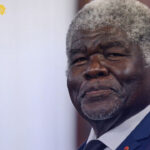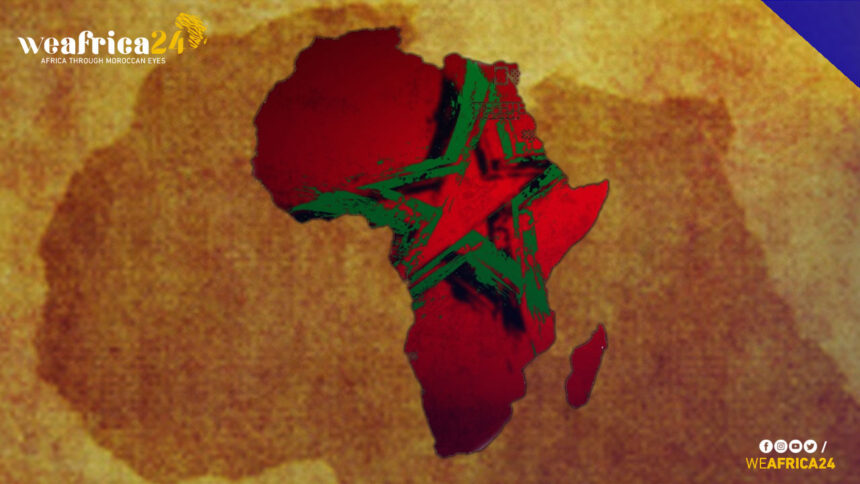As one of the few countries on the African continent that has a long-standing history and heritage, Morocco’s importance for Africa has never been underestimated. Its strategic location at the crossroads of Europe, Africa, and the Middle East has given it a unique cultural identity and an important role in shaping the continent’s political, economic, and social landscape.
In recent years, Morocco has emerged as a key player in Africa’s development. As a result of its stable political climate, growing economy, and its efforts to deepen its relationships with other nations. In this article, we will explore why Morocco’s importance for Africa and how it has become a leader in the continent’s development.
Location and Geography of Morocco
Morocco’s location has made it an important trading hub for centuries. It has linked Africa to Europe and the Middle East.
The country’s geography is diverse, with the Atlas Mountains running through the center of the country, and the Sahara Desert covers much of the south. The northern coastal region is home to several major cities, including the capital city of Rabat, Casablanca, and Tangier. All of which are important economic centers.
Its location and geography have played a significant role in its history and its current importance in Africa. The access of the country to the Atlantic and the Mediterranean has made it an important gateway for trade and cultural exchange between Europe, Africa, and the Middle East.
Political Stability
The kingdom of Morocco is a constitutional monarchy with a parliamentary system of government. Its political stability is a major factor in its importance to Africa. Unlike many other countries on the continent, Morocco has enjoyed relative peace and stability for several decades. This has allowed it to focus on economic development and building strong relationships with other African nations.
The country has also been a leader in regional diplomacy, hosting several major conferences and summits focused on African development and cooperation. For example, in 2016, Morocco hosted the COP22 climate conference in Marrakesh. Which brought together leaders from around the world to discuss ways to combat climate change and promote sustainable development.
Economic Growth
Morocco has one of the largest and fastest-growing economies in Africa, with a GDP of over $100 billion in 2021. The country has made significant strides in recent years to diversify its economy, with a focus on sectors like tourism, manufacturing, and renewable energy.
A combination of factors, including political stability, strong infrastructure, and a skilled workforce, has fueled the growth of the Moroccan economy. The country has also made significant investments in renewable energy, with a goal of generating 52% of its electricity from renewable sources by 2030.
Morocco’s economic success has had a ripple effect across the continent, with the country serving as a model for other African nations looking to build strong, diversified economies. The country has also become an important hub for foreign investment, with companies from around the world investing in sectors like renewable energy, agriculture, and manufacturing.
Regional Leadership
The growing economic and political importance has given the country a leadership role in Africa, particularly in areas like regional diplomacy, security, and development. The country has been actively involved in promoting peace and stability in the region and has been a key player in several major African Union initiatives.
For example, Morocco was a founding member of the African Union in 1963 but withdrew in 1984 over a dispute with the organization’s recognition of Western Sahara as a sovereign state. However, in 2017, Morocco was readmitted to the African Union, after King Mohammed VI made a commitment to promoting African development and unity.
Consequently, Morocco has taken an active role in several regional initiatives, including the African Continental Free Trade Area (AfCFTA), a historic agreement signed by 54 African nations to create a single market for goods and services on the continent. Morocco was one of the first countries to ratify the agreement and has been a strong supporter of its implementation.
Morocco has also played a leading role in promoting regional security and stability, particularly in the Sahel region, which has been plagued by terrorism and conflict in recent years. The country has provided military and financial support to several Sahel countries and has worked closely with the African Union and other international partners to combat terrorism and promote peace in the region.
The cultural Importance of Morocco in Africa
Morocco’s unique cultural heritage and diverse population have also contributed to its importance in Africa. The country has a rich history and a vibrant cultural scene, with influences from Amazigh, Arab, Jewish, and European traditions.
It is home to several UNESCO World Heritage sites, including the ancient city of Fez, the medina of Marrakesh, and the Roman ruins of Volubilis. The country’s cultural attractions and festivals, such as the annual Marrakesh International Film Festival and the traditional Gnawa music festival, attract visitors from around the world.
Morocco’s cultural influence extends beyond its borders, as well. The country has been a major center for Islamic scholarship and culture for centuries and has played an important role in spreading Islam throughout Africa and beyond. Today, Morocco continues to be a leader in promoting interfaith dialogue and understanding, with initiatives like the Marrakesh Declaration on the Rights of Religious Minorities in Muslim Majority Countries.
Is it all?
Morocco’s importance for Africa cannot be overstated. Its strategic location, political stability, economic growth, regional leadership, and cultural influence have made it a key player in shaping the continent’s future.
Morocco’s deepening relationships with other African nations and its promotion of regional development and cooperation position it to play an even greater role in the future of Africa. By leveraging its strengths and working together with its partners across the continent, Morocco can help to create a more peaceful, prosperous, and sustainable Africa for generations to come.







